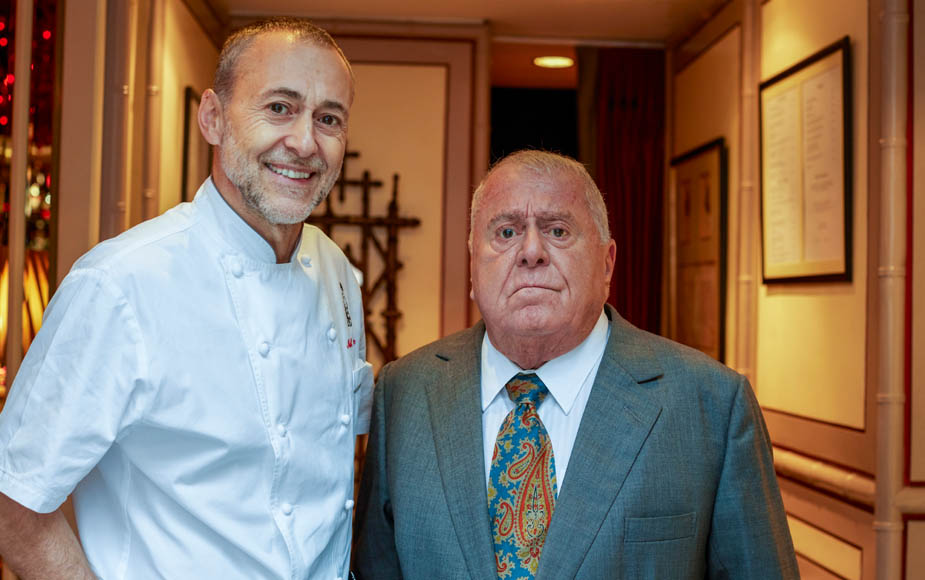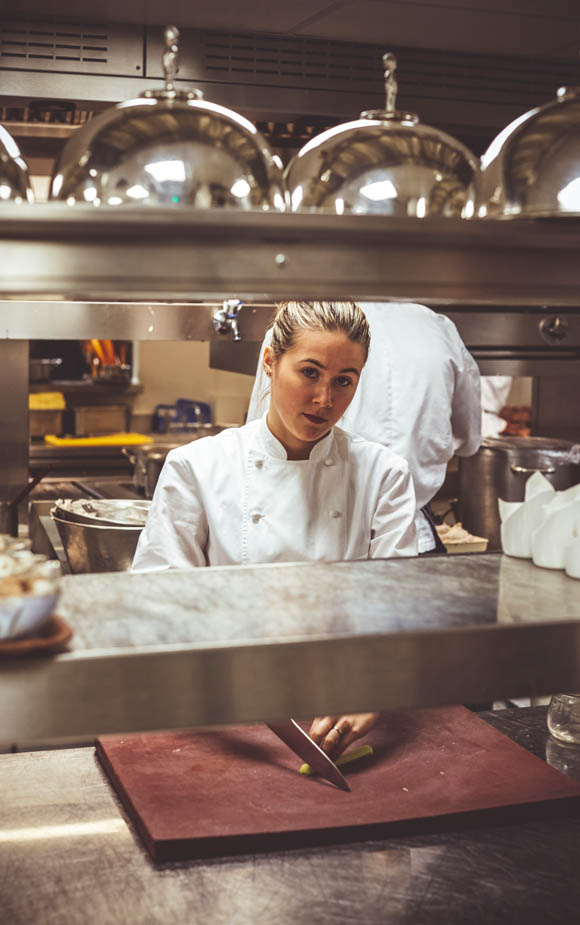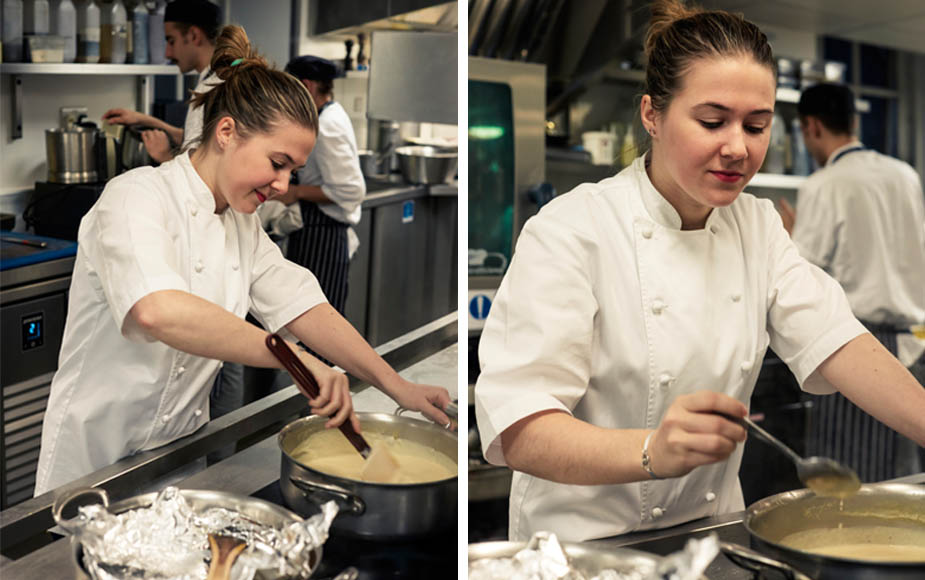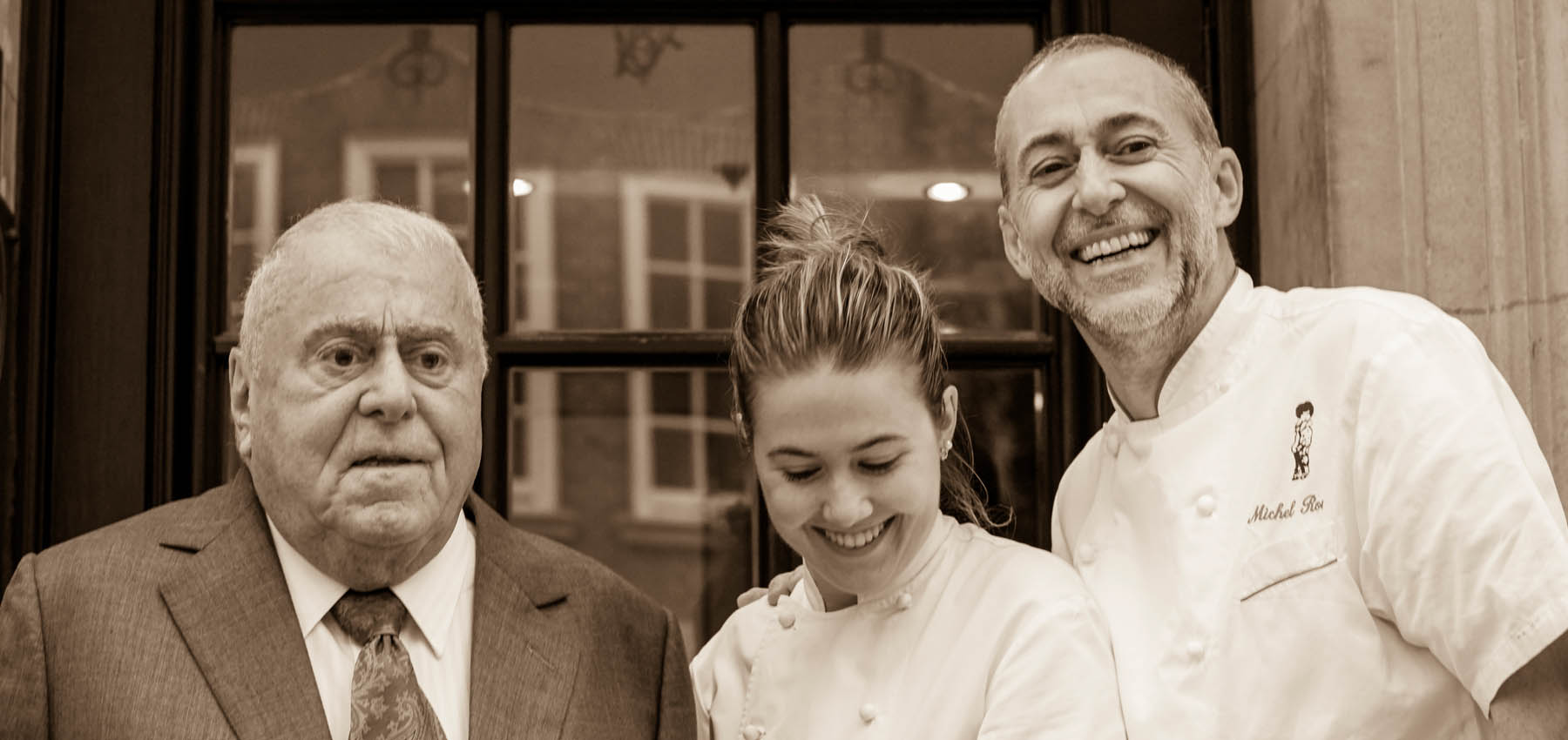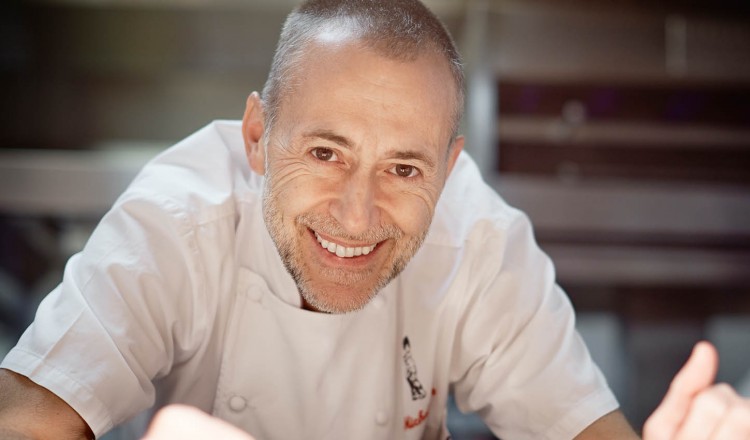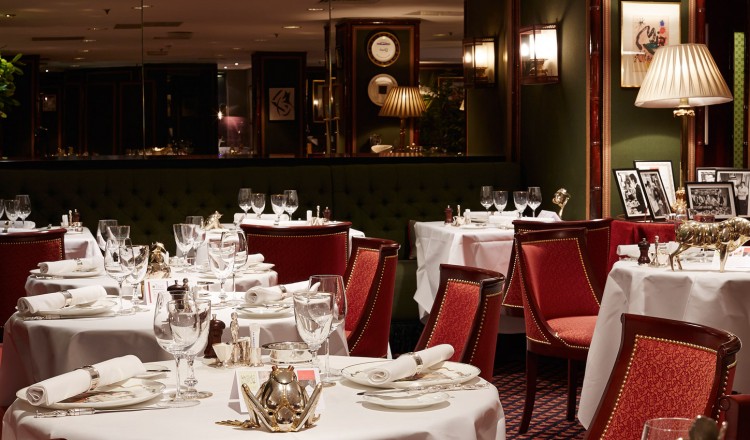There is another reason, a personal one, why Michel Roux Jr. is feeling proud: his daughter Emily, now 25 years old, is stepping into the limelight, happy to tell the world that she will be following in her father’s, grandfather’s and great uncle’s footsteps. Having trained and worked as a chef in France, Emily has returned to London to work in the world of restaurants. She will debut her cooking in London at Le Gavroche, at an aptly named New Generation event.
Meeting three generations of the Roux family – a family who have been so influential in shaping Britain’s restaurant culture – is a fascinating experience. Albert Roux, impeccably dressed in a suit, formidable, charismatic, humorous, a wonderful storyteller; Michel Roux Jr., with his penetrating gaze, talking courteously with thoughtful, assured intelligence; and Emily, youthful, with a wonderful smile, and a great energy about her. Each of them is an individual in their own right, very different from one another; yet they share a drive, a certain toughness, a willingness to work hard and a commitment to doing what they do to the very best of their abilities, each professional to the fingertips. That this is a close-knit family is manifest when one sees them together: the affection with which Michel treats ‘Papa Roux’, the humour as they speak, often teasingly, to each other and a sense of pride when they talk of each other. Each of them switches effortlessly from English to French, and then back again, reflecting the continued importance of France, with its great culinary heritage, in their sense of identity.
The roots of that family drive to achieve are clear in Albert Roux’s story, which he tells with emphatic relish and a wonderful French accent, retained despite his decades in Britain. He came over in 1953 at the age of 18 years old: ‘It was just as if they sent me to the moon.’ He remembers being asked by the chauffeur if he’d like a cup of tea at a Lyons teahouse, and his amazement at seeing him bring out coupons – tea and sugar were still rationed. He began his career in England working as a servant in great houses; ‘I was not cooking, my dear; I was, what you would say in good English, a scullery boy. I worked my way up. After six months, I started to get near the stove.’

Shrewd and imaginative, Albert felt that there was a gap in the market for Le Gavroche. ‘What was on offer here – Caprice, Mirabelle – there were about three or four restaurants who were offering those kind of dinners, where the food was’- here he pauses and shakes his hand in an expressive ‘so so’ gesture – ‘in my view,’ he emphasises. ‘We wanted to offer something new, a shorter menu and lighter cuisine, without losing the base of our identity which was fundamentally classic French.’
Albert brought over his brother Michel Roux to work in partnership with him setting up Le Gavroche, fulfilling the brothers’ long-held dream to work together. That bond can be traced back to their childhood, Albert explains, when his father left the family while the children were young. ‘Mum was our jewel. She had to go and scrub floors. When I was in Scotland earning £5 a week I used religiously to send £4 to my mum. Michel and I were always very close and we were always going to be in business together. We used to write to each other and say “To my future associate”.’
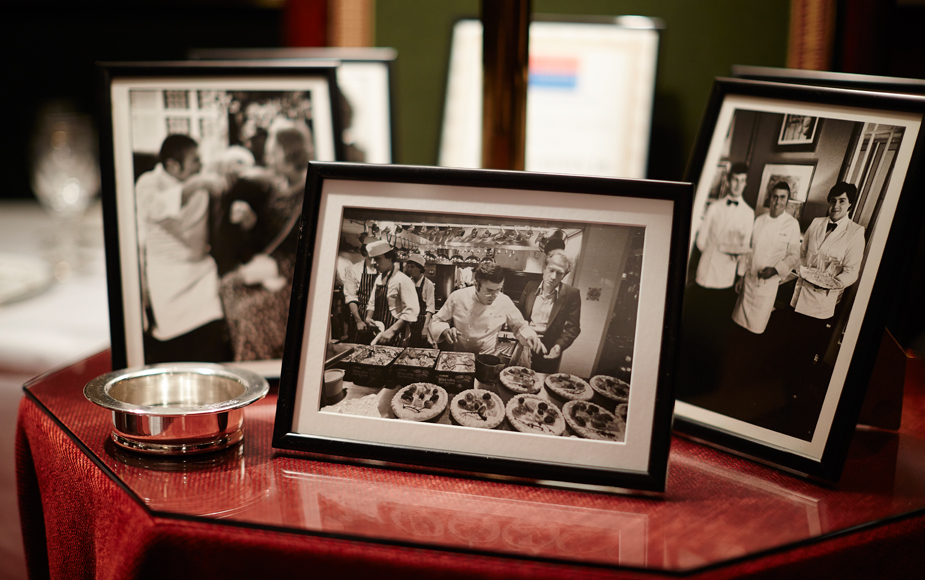
With regards to Emily, his granddaughter, Albert declares, he is ‘extremely excited she has decided to come back here. She has my blessing, though, I would tell her if I felt what she was embarking on was not financially right. That is my duty. She is,’ he adds, ‘a very forceful young woman and she has ideas of her own for her future.’
Michel Roux Jr.’s love of food was apparent ever since he was a boy, although Albert thought that his son might become an architect. ‘When Michel had finished his O-levels, I asked him what he wanted to do and he said “Dad, I’m surprised you’re asking. I want to be a chef.” Michel trained as a chef in France rather than with Albert, working there for some years before returning to England and working at Le Gavroche, taking over the running of it in 1991.

Before Michel Roux Jr. settles down to talk to me, having first politely excused himself, he adjusts two pictures on the wall, carefully straightening them, then, satisfied, sits down. It is a small thing but a telling one – both the courtesy and the perfectionism are revealing of the man himself. Thinking back to his extensive training in France, he talks of the impact of his ‘first boss’ Henri Hellegouarche. ‘Very much a mentor figure. Very rarely did he shout in the kitchen. You would follow him through thick and thin because of the respect he commanded through his authority. I think it’s important, especially in your first few jobs as an apprentice, that you have people that you can see as a role model, someone about which you think that’s the way I want to work, who instils values and respect.’ Of course, Michel, like his father and uncle before him, is a role model himself. Working with young people is, he agrees, a Roux trait. ‘My father and uncle have worked with so many young people and go into colleges inspiring young boys and girls to come into our industry which is so, so important. That’s definitely something I’ve embraced and wish to continue. With the Kitchen Impossible series I was working with people with disabilities. Sometimes people just need a chance. It doesn’t take that much time or effort for someone like me and can make so much difference.’ He feels deeply that working in kitchens can be life changing for the disaffected and is eloquent on the subject. ‘They have a sense of belonging, a sense of being important – and that’s what a restaurant can give, because if you’re prepared to put in the hard work then you can very quickly become an important member of team. That makes you feel good inside yourself, gives you self-respect.’ He talks animatedly of what’s required at Le Gavroche: ‘Running a restaurant is challenging as well. Every day you have different clients with expectations that you have to be able to match and exceed, which is,’ he widens his eyes expressively, ‘a challenge.’
The opening of Le Gavroche in 1967 was a great success. ‘I had the Who’s Who of Great Britain here on the opening day,’ Albert tells me with evident relish. ‘Dukes, duchesses, artists like Noel Coward; they all came. Fur coats piled on each other. The next day the phone didn’t stop ringing and we’ve been packed ever since.’ A born raconteur, Albert regales me with restaurant tales, including the time when the manager was alarmed at the arrival of a party of ‘hooligans’ in sheepskin coats who had reserved a table– it was, in fact, the Rolling Stones.
The musicians were unrecognised by Michel Roux on front of house that night, who, when Albert told him who these diners were, memorably asked, ‘Who are the Rolling Stones?’
